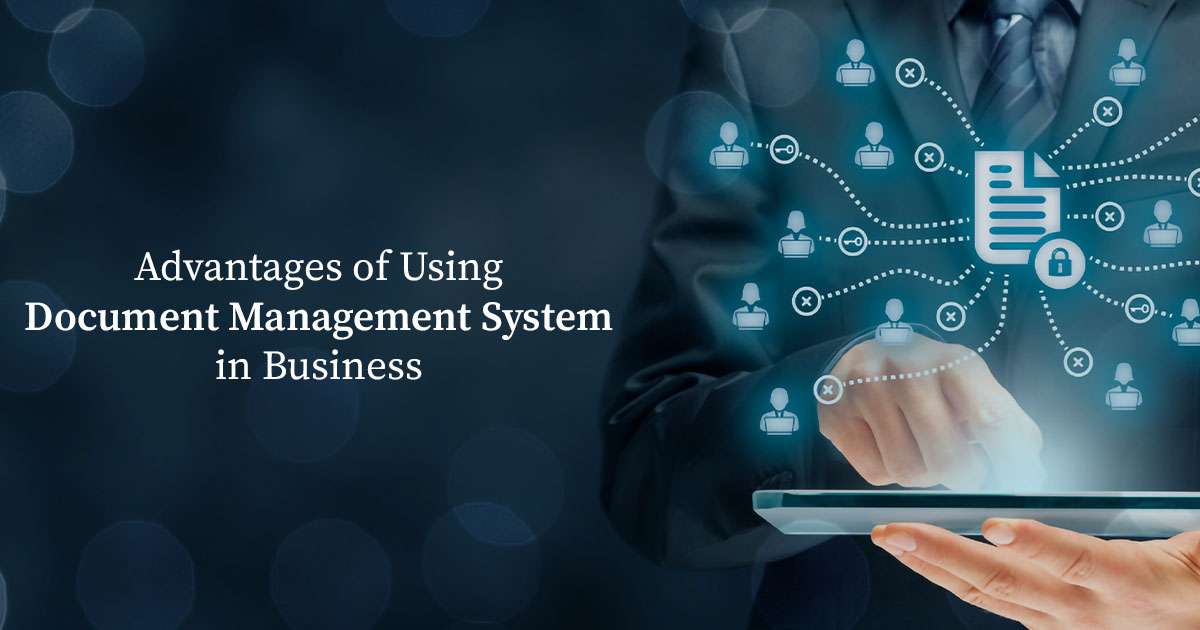The Purpose and Benefits of a Document Management System in Business

In the business world, data management is no longer just an operational necessity—it’s a strategic imperative. With the exponential growth of digital information, businesses are grappling with enormous volumes of data. According to IDC, the global datasphere is expected to reach an astounding 175 zettabytes by 2025. This vast sea of data holds invaluable insights that can drive business success.
However, there’s a sobering flip side to this data revolution. Losing this precious data can be catastrophic for businesses. As per a study by the University of Texas, 94% of companies suffering from a catastrophic data loss do not survive. Therefore, storing data securely and effectively is the lifeblood of any modern business.
Storing data is one thing, but storing it properly is another challenge altogether. This is where the importance of a Document Management System (DMS) comes into focus.
What is a Document Management System?
A Document Management System (DMS) is a software solution used to receive, track, manage, and store documents and reduce paper circulation in an organization. It’s essentially a digital filing cabinet that provides a framework for organizing all digital and paper documents.
The core functionalities of a DMS encompass storage, version control, security, indexing, and retrieval—but it’s more than just storing documents in a digital format. A DMS aims to make these documents easy to find and share by indexing them in a logical manner. It also controls who has access to what, ensuring data security.
The primary goal of a DMS is to facilitate the efficient use of data and improve the way it’s stored. In a world where data is growing exponentially, a DMS helps businesses manage this data, making it easily accessible while ensuring its security. It’s not just about storing data, but about managing it effectively to streamline business processes, boost productivity, and ultimately drive business growth.
11 Advantages of Using a Document Management System
Adopting a document management system can offer a plethora of benefits to businesses.
Improved Data Retrieval
The advanced search features of a DMS can locate files based on metadata, tags, or even content within the document. This is a significant improvement over traditional methods of searching for documents, such as sifting through file cabinets or searching through disorganized digital folders. The time saved on document retrieval can significantly improve productivity and efficiency.
Enhanced Security
DMS offers robust security measures to protect sensitive data. Access controls can be set at different levels, from system-wide to individual documents, ensuring that only authorized individuals can access certain files. The audit trail feature provides transparency and accountability by recording all interactions with the documents, which is crucial for investigations or audits.
Increased Collaboration
DMS allows multiple users to access and work on documents simultaneously, improving collaboration within teams. The version control feature ensures everyone is working on the latest version, reducing confusion and preventing work duplication. Some systems also provide real-time editing and commenting features, enhancing collaborative efforts.
Space Saving
By converting physical documents into digital formats, businesses can free up office space previously used for storing file cabinets or boxes of documents. This space can be utilized for other purposes, improving the overall workspace environment.
Disaster Recovery
With DMS, your documents are stored in a secure offsite location, typically in the cloud. This means that in the event of a disaster, like a fire or flood, you can quickly recover your critical business data. This is a significant advantage over physical document storage, where documents can be permanently lost in such events.
Regulatory Compliance
DMS can help businesses comply with various industry regulations related to document retention, privacy, and security. It can automate retention schedules, ensuring documents are kept for the required period. The system’s security features can protect sensitive information, helping businesses avoid penalties associated with non-compliance.
Cost Savings
A DMS can result in substantial cost savings. The reduction in paper, printing, and storage costs is immediate and significant. Furthermore, the improved efficiency of quick document retrieval and streamlined workflows can lead to long-term savings.
Better Organization
DMS allows businesses to categorize and index documents in a logical manner. This makes it easier to manage and retrieve documents. It also eliminates the chaos and frustration often associated with disorganized documents, leading to a more efficient and less stressful work environment.
Workflows and Approval Processes
DMS can automate various business processes, such as document approval workflows. This reduces the need for manual tasks, increases efficiency, and minimizes the risk of errors.
Remote Access
With DMS, employees can access documents from anywhere at any time, as long as they have an internet connection. This is particularly useful for remote teams or individuals who travel frequently for work.
Environmental Sustainability
By reducing paper usage, businesses contribute to environmental sustainability. Digital documents require no physical resources to create, store, or distribute, making them a green solution.
Choosing the Right Document Management System for Your Business
In conclusion, the benefits of implementing a Document Management System (DMS) in your business are numerous and impactful. From improved data retrieval and security to increased collaboration and cost savings, a DMS can revolutionize how your business manages and utilizes its data.
However, it’s essential to remember that not all DMS solutions are created equal. When selecting the best DMS for your business, consider factors such as ease of use, scalability, integration capabilities with existing systems, customer support, and, of course, pricing. Ensure the system you choose aligns with your business needs and can adapt as your business grows.
Moreover, consider the transition process from your current document management method to a new DMS. Look for providers that offer comprehensive onboarding and training services to ensure a smooth transition.
Remember, the goal is to find a solution that enhances your business operations rather than complicating them. By taking the time to carefully evaluate your options and needs, you can select a DMS that will drive productivity, efficiency, and growth in your business.

